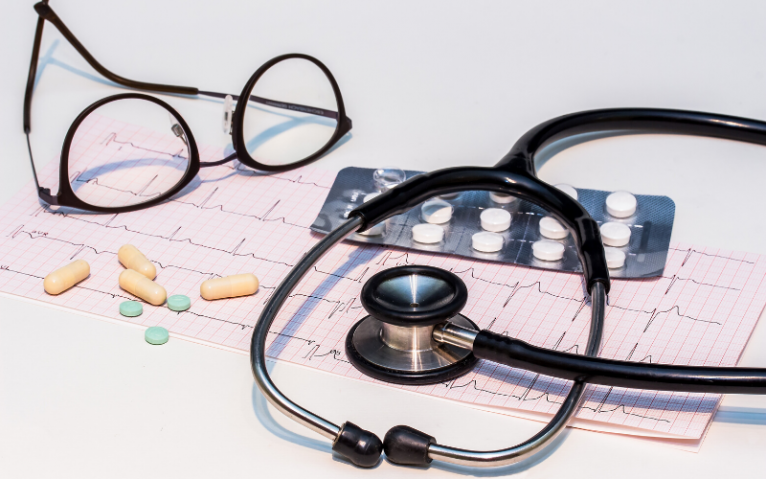Addiction and addiction relapse is viewed differently, with most of our society split into two different schools of thought. Some people believe in the drug addiction disease model, which argues that addiction is a brain condition. In contrast, others see addiction as a series of poor choices.
Psychiatry recognizes addiction as a disease of the brain. In this view, addiction is characterized by compulsive drug seeking and using, despite the known harmful consequences. However, some would argue that addiction is a behavior and that the individual chooses whether or not they will continue to use or relapse.
What’s a Disease?
First of all, let’s explore the meaning of disease. In essence, these are medical conditions that prevent the body from performing as it normally would. Chronic diseases such as lupus and arthritis have long-term effects that can afflict someone for the rest of their life. Even heart disease can present relapses.
Well, addiction is no different. When people see addiction through the lens of disease, it becomes easier to understand the importance of treatment and long-term aftercare to prevent relapses.
The Disease Model
People who argue that addiction is a disease cite evidence that substances change the way the brain functions. This belief is based on the theory that the brain is an organ that can have faults, just like any other part of the body. Addiction and addiction relapse is a defect of the brain’s hedonic system, which perceives pleasure. This defect causes an addict to subconsciously believe that their drug of choice or alcohol is the answer to pleasure and life, and the brain sends signals to crave the substance.
For years, the science of addiction has continued to analyze the reward motivation processes behind drug and alcohol addiction. Researchers look at how our body releases dopamine and how certain substances, like addictive drugs, can potentially lead to a brain disease that feeds these addictive behaviors.
Also, cravings can become so strong that even the most in-control, mature person could break down and do whatever it takes to get their hands on the drug or drink. It becomes a necessity for survival. Scientists and researchers recognize that cravings, increased tolerance, and relapse are symptoms of a malfunctioning brain system that result in genuine mental pain and suffering. Despite the consequences, once someone has developed an addiction, “just saying no” can seem impossible.
The Impact of Choices
On the other hand, many people believe that addiction relapse is a choice. This argument is based on the same logic that if a person suffers from a physical disease, their decisions don’t impact their health or cure it. Therefore, because addicts and alcoholics initially choose to drink or do drugs, they do not suffer from a disease. Despite this theory, more and more evidence shows that addiction impacts the brain, much like any other mental illness.
As in most things, this debate is not black and white. While most professionals and researchers agree that drug addiction is a disease that impacts the way people make decisions, that doesn’t mean that we don’t have many choices.
For example, anxiety and depression are diseases, even though they impact the brain more than the body. One can’t choose to have or not have depression. However, they do have choices about treatment. For example, choosing to continue therapy and medications is a way to prevent another depressive episode.
While addicts and alcoholics might not decide to stop once they start, they have the power to choose recovery and seek help from treatment centers.
Is Drug Addiction a Disease or Choice?
No doubt, seeing drug addiction as a disease is still controversial. After all, only 1 in 5 opioid addicts seek specialized treatment. Less than 1 in 5 people associates drug addiction with a friend, co-worker, or neighbor. The stigma linked to drug addiction continues to keep people away from addiction treatment.
However, a study in 2018 found that 53% of Americans see drug addiction as a medical problem.
It isn’t all lost, and many organizations agree that drug addiction is a disease, including:
- The American Medical Association
- The American Society of Addiction Medicine
- Amerian Psychiatry Association
- Substance Abuse and Mental Health Services Administration
Besides these popular organizations, many insurance companies have covered substance use disorders, and mental health conditions are known covered by many insurance companies, framing both issues as medical conditions.
In addition, you have to consider the environmental factors and risk factors that can contribute to the onset of addiction. Those who believe addiction is a choice are often unaware of the brain chemistry changes substances like alcohol or drugs cause in someone. Addiction affects the whole human system because people are almost medically incapable of controlling their actions and choices.
Making Positive Choices in Recovery
Addicts and alcoholics often need help to stop. Family members might have difficulty wrapping their heads around the fact that addiction is indeed a disease. This usually requires professional advice since drugs and alcohol can severely impact judgment. Because addiction impacts the brain, therapy, medication, and support are necessary.
This doesn’t mean that there are no choices, however. People in recovery have to make decisions to support their sobriety and prevent relapse. Once someone is clean or sober, it’s up to them to continue making healthy choices.
Attending support groups can help people feel less isolated in recovery. These groups can be pivotal in preventing relapse.
For these reasons, at Lighthouse Recovery Institute, we combine a medical treatment model with in-depth therapy. We aim to offer our patients the medical, professional help they need to stop using and the tools to continue making healthy choices after they leave treatment. Our program provides relapse prevention, family therapy, and life skills development (among many other approaches) to help our patients meet this goal. If you are looking for comprehensive, quality treatment, give us a call today.





